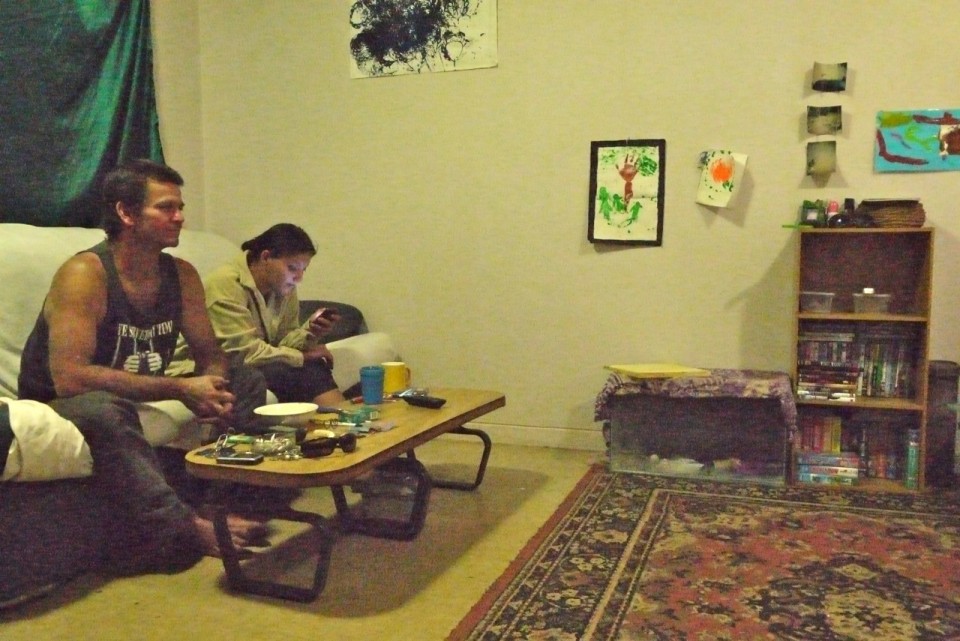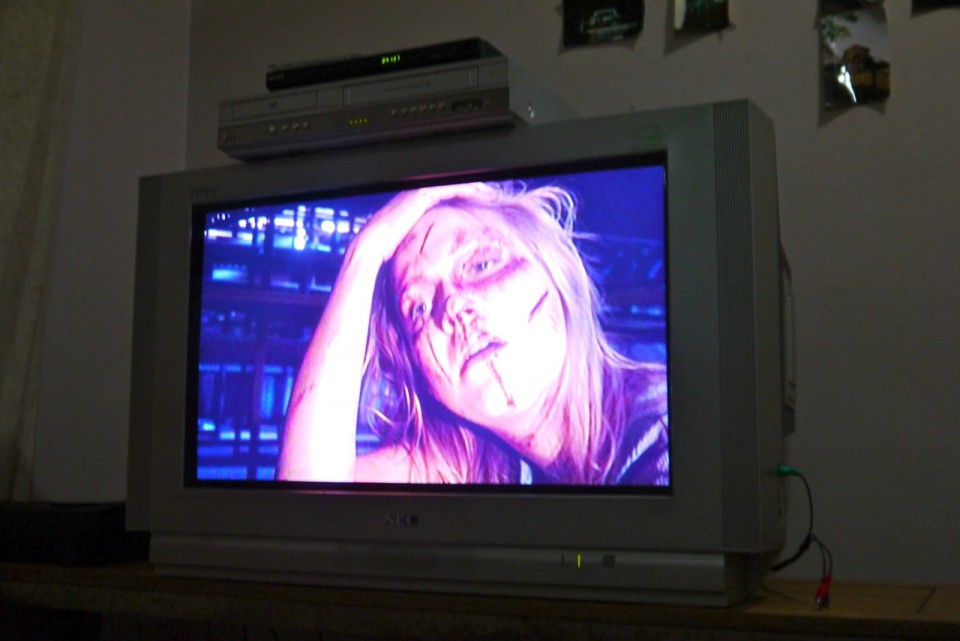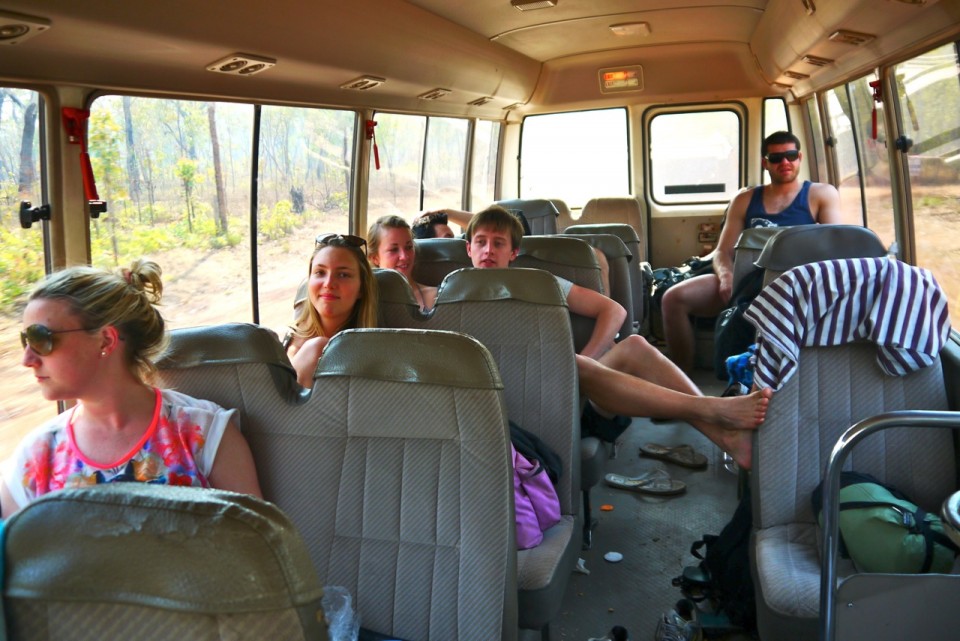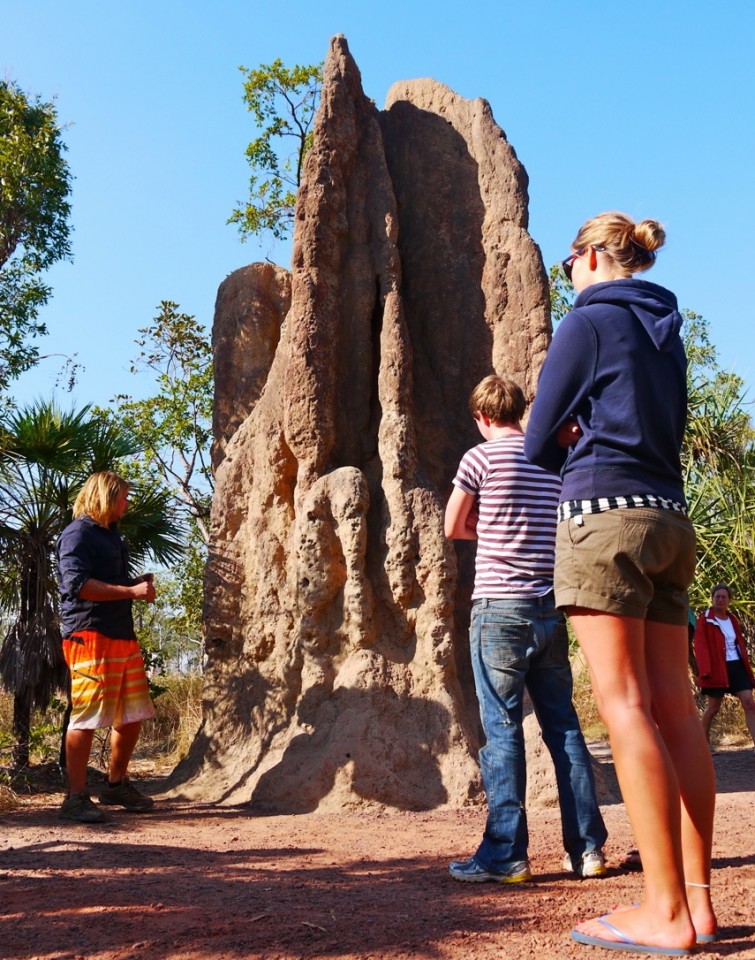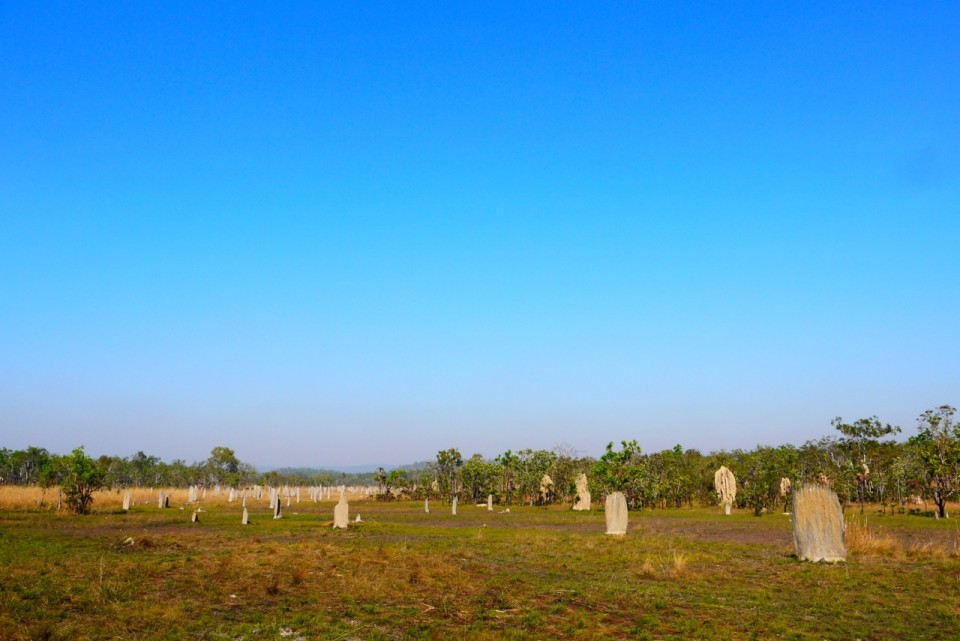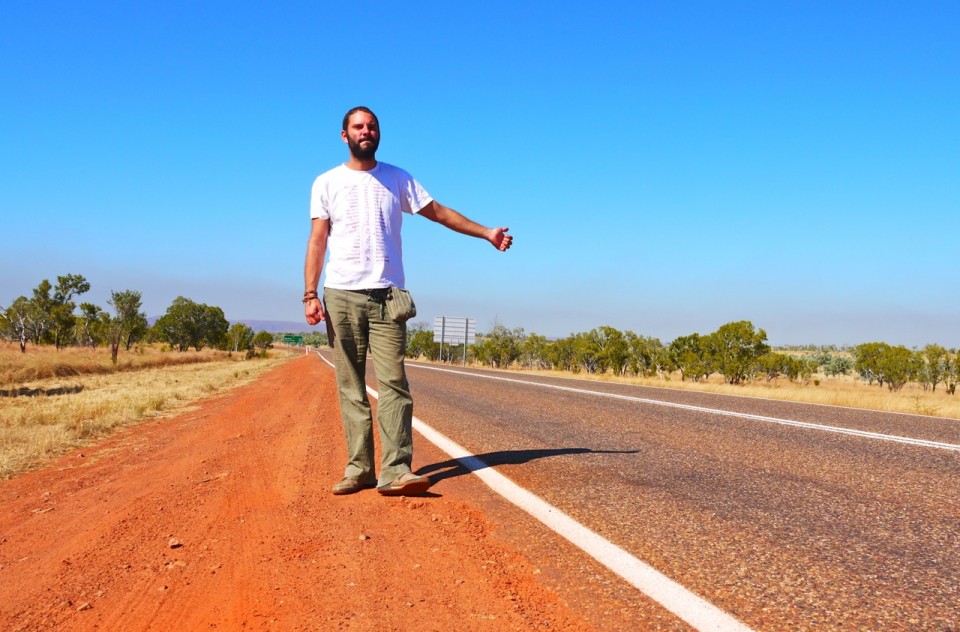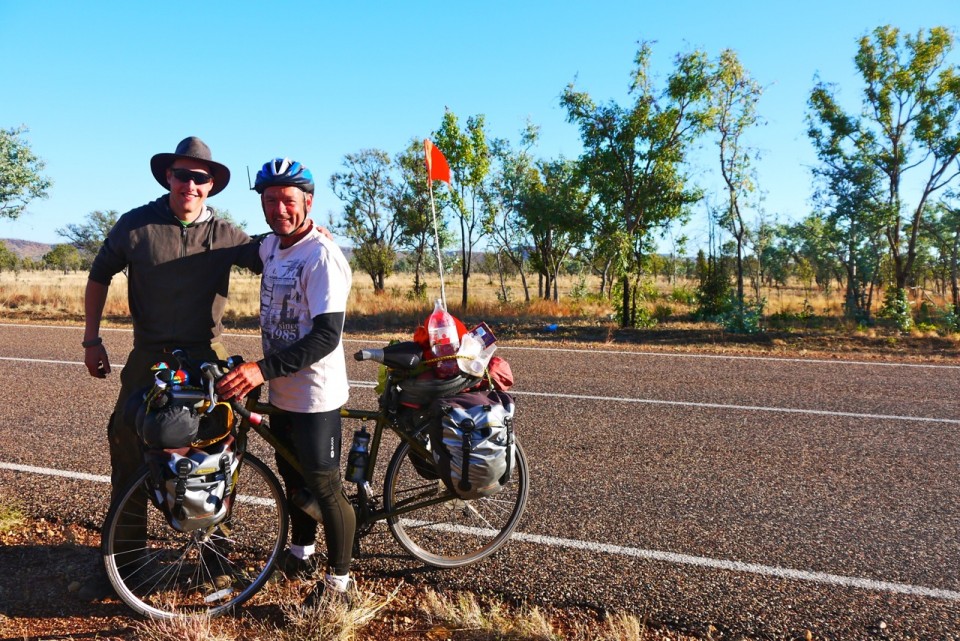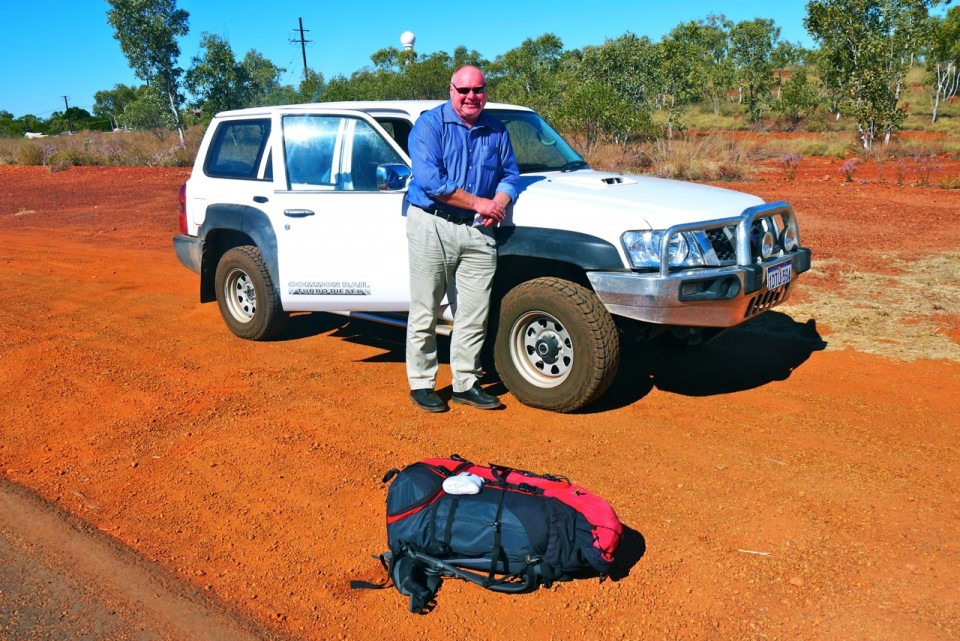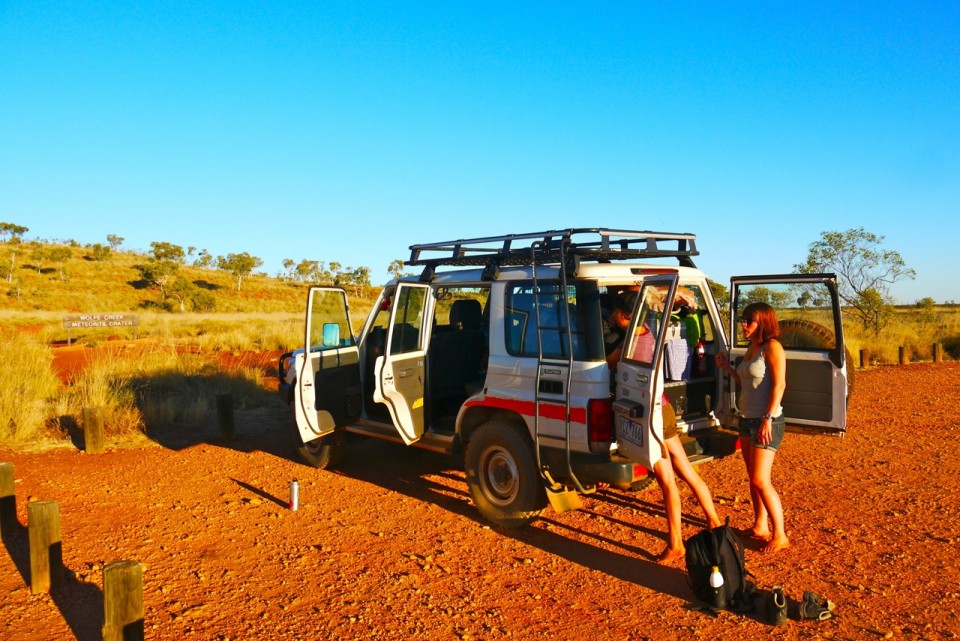And that is how I ended up in Batchelor, in a home of the couple that had picked me up a few hours before. In fact, that was the second time that I slept over in a house of someone who had given me a ride. It reminded me of two stories from my first journeys in Europe very dear to me: once, in Switzerland, in the middle of the night, after an encounter with police for having walked by the highway, a French man, who had gone to university in Croatia in 1971, picked me up and I had spent that cold night at his place. Also, there were my two Spanish girls, Amanda and Sandra, who had shown mercy towards me after seven hours of dying in the sun of Andalucia and had taken me to their place and hosted me for four days. Those are some nice memories.
The Australian story, all things considered, wouldn’t be like those two stories that I would continue to retell, over and over again. However, even this one had a potential. A decrepit house, surrounded by a couple of half-disintegrated cars, and every now and then their 17(!) hounds, which were used for a hunt at wild hogs, would show themselves.
I helped around the house chores a bit, offered my help with dinner after which we sat in the living room, and watched a movie. And that was when the story got a spooky twist – my host were the most obsessed fans of horror movies I had ever seen. And not just any horror movies – each and every one was even worse than the one we’d seen before: by worse I don’t mean scarier, but literally worse – as if a bunch of teenagers gathered up and made a horror movie. Bad effects, the story was even worse, all in all, a complete mess.
Moreover, my hosts really enjoyed those movies: not enough that I got scared sleeping in the bedroom that they had already prepared for me the moment I arrived there, but still. I asked them where all the passion for those kinds of movies came from, but they didn’t know what to say. The closest thing I got to an answer was their saying that they couldn’t understand all kinds of nasty things people were capable of doing to each other: this was the very reason why it was fascinating to watch it. I retreated to my bedroom and slept like a baby without a worry on his mind.
It was only after I turned the key in the lock twice and put a chair as a barricade under the door knob.
The following morning, encouraged by the fact that I’d made it through the night, I informed my hosts that I’d decided to make a visit to the nearby Litchfield national park and make a use of their hospitality for another night if that was okay with them, of course. They were totally okay with it.
The only thing I knew about Litchfield national park was the fact that it took me 6 or 7 kilometers by foot in order to get to the entrance. I supposed that it would be relatively easy to hitchhike to the park because whoever passed on that road had to go towards the park. After a half an hour and only a few cars, a tourist bus passed by and it pulled over after a hundred meters. I wasn’t sure if they were stopping for a break to go to the toilet, but just to be sure I ran towards them to ask them. There were six of my peers in the bus, a driver, maybe a bit older than me.
– Where are you going?
– The same place you are.
– Hop in!
And this is how I hitchhiked a tourist bus. I started talking to the guys straight away: they were on a one-week tour across that part of the Australia and that very same day they were planning to make a trip to Litchfield national park. Shortly after, I found out that there were several sights to be seen in the park: all of them were some ten kilometers distant from each other. The driver told me straight away that it would be best if I joined them for the rest of the day: so I got myself a free tourist tour.
Our first stop were giant termite mounds. These are not inhabited by giant termites as the term may fool you to believe, but instead by normal-size termites who had built giant livings. Their tempo is like that of a ________(insert a comparison with an utterly slow tempo of a politician, a party in power or something like that) – in five years they only manage to build a half of meter of mound. The highest mound we’d seen was approx. 4,5 meters high which meant that it was some 45 years old.
Also, we paid a visit to magnetic termite mounds, but beside taking some photos I didn’t memorize much information about them – the only thing I remember is that their livings were flat and were built in the north-south direction, which is why they are called magnetic. However, this hasn’t got anything with magnetism, but with something else. If you want to get this information, you’ll have to google it. Sorry.
We did a tour around a small lake with two waterfalls where we took a bath. The guys I was with had a lunch included in the price of their excursion, so they dug in, but not before insisting on my feeding the poor me. When they finally did that, they filled my backpack with the remains of their stock, so the food wouldn’t get wasted. Good people are everywhere, I’m telling you for I don’t know which time, but it’s true.
We gathered on another river with a lot of waterfalls, and went back. However, the goodness of my benefactors didn’t stop there – I guess they really liked me so they decided to give me a lift to my next destination: 200 and something kilometers distant Katherine. All I had to do was take my things from my hosts who, unfortunately, weren’t home, as opposed to seventeen dogs that started barking like crazy as soon as I approached the fence. I thanked to my one-day friends on their generous offers, exchanged contacts with some of them and waited for my hosts while my friends continued with their ride.
Another night of horror movies and early in the morning I would go on. My destination – Broome. The distance – approx. 200 kilometers. That’s Australia.
I got myself the first ride with the Grey Nomads just when I thought that I would leave Australia before getting a ride with one of them. After them, a 19-year-old Swiss pulled over in his SUV bought a few days before. The man had a job in Switzerland, but he decided to do a tour of Australia for a couple of weeks. I spend the night with him in a camping area by the road. The next day, while we were driving west-ward, I saw a bike and a red flag so I told to the Swiss to pull over because I knew the man on the bike. It was Grant, the crazy cyclist whom I’d met while I’d been with the French guys, and he was doing pretty well. We took some photos, offered him some water and resumed our ride.
I had been given a couple of more lifts before a man pulled over wearing a blue shirt and a big smile on his face. Glen would give me a ride for the next 200 kilometres. Also, he would educate me about the situation of the Aborigines in Australia, in which he’s a real expert.
By the time I got into the Glen’s car I had only met a few people of the Aborigine descent. Some of them were people who had fit perfectly into the Western lifestyle and weren’t much different from the others apart from the color of their skin. Some of them were half naked and their bodies were colored with vivid colors and in that way they would entertain tourists, take photos with them and earn their living. Some of them, which were unfortunately the majority, were addicted to alcohol and sniffing gasoline, and could be seen in most of the cities wandering aimlessly down the streets. Glen was the expert for the last group: unassimilated, and with no interest towards tourists – he was a lawyer, specialized in defending the Aborigines.
Glen was originally from Melbourne, however, for the past couple of years he had been working in Northern Territory. He was married to an Aborigine woman and they had two children. Also, he was a partner in a big law firm who had hired more than thirty lawyers but he had decided to leave them, go back to the field and try to make a change. I believe it’s not necessary to mention that with both moves – marring a humble Aborigine girl and changing the comfort of a lawyer practice for the gloomy everyday of walking through the courts – was met with the accusing looks of his friends and acquaintances.
His holy mission was keeping the Aborigines away from prison. In Western Australia the population of the Aborigines was about 4%, while in the prisons the situation was quite different: almost the half of the prisoners was Aborigines. If we were to talk about the underage violators the number goes up to almost 100%. The system wants more police officers, stricter laws and more people locked up. What Glen wants to do is to convince everyone that the point was the prevention. The government was not bad: every now and then they would invest some money in the prevention, social workers were on the streets talking to the kids, but all these efforts weren’t enough. They would much rather spend a couple of millions in building a new prison instead of investing that money in the prevention: all with the unfailing motto – do the crime, do the time.
However, Glen, for the past twenty years spent in defending the murderers, rapists and thieves had realized that, in fact, very few people were truly evil. There were very few people who really enjoyed hurting other people. Most of them were marked by a childhood trauma, had violent parents, and lived in an environment where they weren’t understood; the crime was their easiest option, very often also the only one.
We also talked about the white Australians who, according to me, were enjoying the highest life standard in the whole world. The economy was excellent – the minimal hourly wage was 16$. Most of them had a beautiful house, a nice car, surfing equipment, ate at the finest restaurants. And those were the things that made them happy. However, that was only on the surface – the divorce rate was very high. Also, the suicide rate was one of the highest in the developed countries. The large amounts of alcohol and drugs were consumed.
And they are kind of jealous of the Aborigines, watching them walk around careless, without a job, without having to worry about the mortgage or if they will have more than their neighbors. After all, it is their country: why should they pay a permit to live there? The Australians see it as a threat – they have to work hard so they could afford all the things they own, they have to pay off the mortgage and own money to the bank; why wouldn’t the Aborigines be just like that? It’s not fair that they could lead such careless lives, without the usual “white” worries.
It reminded me of my own experience with travelling and not being understood by a part of my environment, but, of course, to a much lesser extent than the Aborigines. People keep asking me how I can hitchhike, how I can travel, when I will find a decent job, when I will gain credit, marry and stuff like that. The story is, basically, always the same and it has been explained a long time ago. The majority wants from the minority to accept their lifestyle, especially when they think that their way is always the harder one. Hey, why shouldn’t everyone suffer when they’re suffering? Living in a different, alternative way is, in a way, a defeat for them – even they once wanted to live how they wanted to, but, somewhere on the way, they got lost it up and joined the majority. So, now they’re doing what nearly everyone does – they’re trying to make the minority join them so they could feel better.
In Australia, the racism isn’t institutionalized like, let’s say, in South Africa, it’s much more subtle. Even though the Australians are ill-tempered by their nature they also have a softer side. If they see a young Aborigine who made an effort to accept their lifestyle, they will accept him and be supportive.
Moreover, the great responsibility falls on the media which is not very fond of the Aborigines, so a lot of people from the very start have a negative opinion about them. This results in strict laws, one of which prescribes a minimal prison sentence of one year if you commit a felony three times: this includes the under aged ones. Although, at first, it seems fair that if you rob someone’s house three times, you deserve to go to jail for a year, the criminals are usually drunk kids who break into the houses of the rich Australians who have it all. Also, in most of the cases they hardly steal anything – sometimes only food. So, they end up in jail from which they leave, as it has been proved, only worse so they repeat the crime.
After all, it all comes down to a fact that the Australians don’t understand the Aborigines; they don’t understand their own history. They were too busy setting it on, instead of studying it thoroughly and trying to establish peaceful and sustainable coexistence.
After that educative ride, Glen left me by the road and went on, to take care of his wife and children, or to defend the sins of the minority – either way I wish him all the luck.
And I, once again, stuck out my thumb. I still had some 800 kilometers to Broome, and the night was soon to come. Where would I spend it?
A SUV pulled over with two girls inside. After introducing themselves I realized they were French. They were actually going in other direction, but they were planning to spend the night in Wolfe Creek, some hundred kilometers distant, so if I wanted to join them…
The name sounded familiar. I’d come across it a couple of times during the journey and all from the people who wanted to scare me off/warn me about the potential danger of hitchhiking through Australia: Wolfe Creek was the name of a horror film made after a true event in which three backpackers had ended up as victims of a maniac who captivated them in his house, tortured them; something like that. And the three backpackers were, in fact, two girls and one guy. Hmm.
Anyway, I had enough time, didn’t have any other plans where to spend the night, so I got into the SUV, and, along with the girls, followed the dusty road all the way to the scene of the horror film. I’d already survived two evenings of watching bad horror movies; it was high time I’d gone to the scene of a real one.
